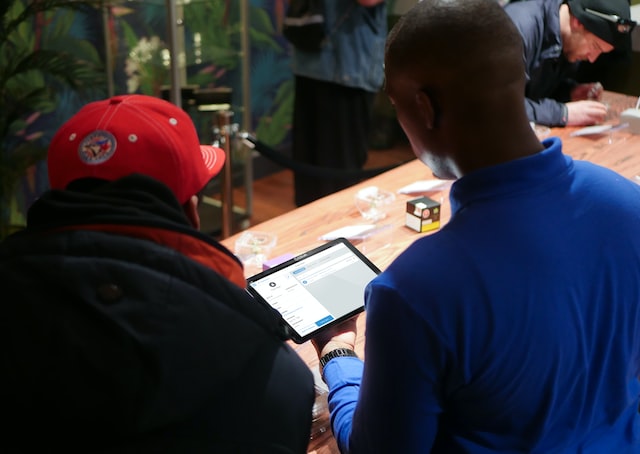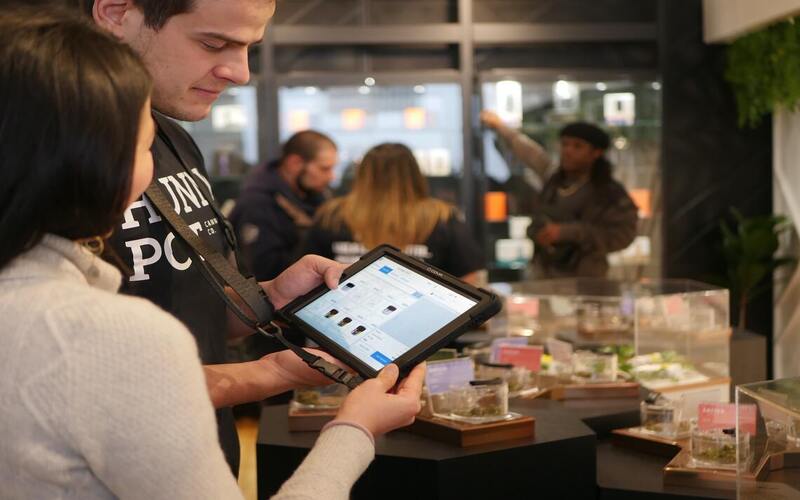Legal cannabis has always had an outsized and unjust share of obstacles — but it now faces a perfect storm of calamity. From inflation and oversupply to punitive tax systems and illicit market competition, small cannabis retailers and brands are struggling to survive.
With so many factors beyond their control, the best way for cannabis businesses to compete in this brutal environment is by leveraging customer relationship management (CRM). By adopting CRM strategies and tools, cannabis brands and retailers can tap into their existing customer bases, increase revenues, and lay the infrastructure to compete once cannabis is federally legal. Retailers and brands often bemoan the notoriously fickle cannabis clientele, but loyalty is earned, not given. CRM is what allows successful brands to earn devoted followings, and cannabis businesses need to get in the ring.
Inflation, Efficiency, and Oversupply Have Cannabis Businesses Hemmed In
Inflation has driven most businesses to raise their prices — but not cannabis. Our balkanized, dysfunctional legalization framework has caused an intrastate product glut, and the per-pound price of cannabis has declined steeply. There’s so much flower that, even as their costs spike, cannabis retailers can’t raise prices for fear of losing customers to the competition.
As for cutting costs by increasing efficiency? By and large, cannabis operators have figured out efficient production so well that, from seed to sale, it’s highly improbable that we’ll be able to reduce those costs anytime soon. Cannabis has already endured several rounds of layoffs. There is simply a limit to how much further you can trim the costs of staffing, testing, facilities, or other overhead costs.
Between oversupply, maxed out-efficiencies, and a thriving illegal market, cannabis retailers are stuck in a race to the bottom, undercutting one another and losing money to compete for customer share. But the days of undercutting the competition to win market share are over. Many of the old options for belt-tightening are gone.
Why CRM is the Path to Surviving and Eventually Thriving
In my experience with cannabis retailers and brands in Arizona and California, the next best place for these businesses to invest their time and energy is customer relationship management. It’s the arena in which you can compete and win. You can’t package or test or deliver five times better than the competition. You can’t cut costs or raise prices, and you can’t undercut illegal operators — but you can give your customers an experience that’s 100 times better.
All small businesses should be leveraging CRMs, including cannabis small businesses. This shift doesn’t require inventing a new methodology or learning fancy tricks. Instead, we need to tap into what we already know from others that are slaying the CRM game.

The target market for dispensaries is already using Netflix, Spotify, Instagram, and Amazon daily and is well-accustomed to tailored purchasing experiences. The same customer buying toothpaste on the Target website is also browsing your dispensary website, but the journey of these purchases couldn’t be more different.
Let’s say this customer searches your site for edibles, then purchases several bars of infused dark chocolate. Does she get an email thanking her for her purchase or a follow-up asking what she thought of her edibles? Does she receive an invitation to join the loyalty program or a text alerting her to an upcoming edibles sale? Is she offered a discount on delivery services? No one’s asking cannabis customers these questions. In any other type of e-commerce, some kind of follow-up is standard — but that kind of customer cultivation hasn’t taken hold in cannabis retail.
A 2017 Epsilon survey found that eight out of 10 respondents were more likely to frequent a business that personalized their experience. Yet, all too often there is zero customized post-sale outreach in cannabis. Segmentation is rare. Occasionally, you’ll get a big blast, spray-and-pray “deal of the day” offer in your inbox, but micro-targeting is almost non-existent.
Why send our aforementioned customer a generic message about a weekend sale on flower, when she has asthma and doesn’t smoke? On the contrary: Because the emails she receives aren’t targeted and don’t address her needs, she stops opening them or blocks them altogether. Any opportunity for cross-selling, suggestion selling, or developing a loyal relationship with a repeat customer is lost.
The Best Acquisition Strategy is a Retention Strategy
Customer retention, not acquisition, is key to growth. Referrals will always be the linchpin of success. Repeat and retained customers spend more and will advocate for you to their friends and family. They’re an asset that rarely gets sufficient investment or outreach.
Today’s CRMs organize a treasure trove of data that empowers you to talk to different customer cohorts based on their location, gender, age, and purchasing history.
Custom follow-up gives you hundreds of touch points to explore, from abandoned carts, holidays, and educational offerings to addressing particular customer groups such as seniors and veterans. A whopping 80% of Netflix viewer activity is driven by personalized recommendations. Why shouldn’t cannabis businesses strive to adopt that same model?
Relationship Building Isn’t Easy But It’s Your Brand’s Best Bet
CRM may be simple, but that doesn’t mean it’s easy (in my experience, anyone selling an easy solution doesn’t have one). Like all relationships, customer relationships require time and energy, and a CRM that’s just a glorified management spreadsheet won’t do the job. Cultivating clientele relationships and building community is similar to healthy living in that there’s no magic bullet. It’s about small, consistent daily choices, where success comes from doing the basics meticulously over time.
But I’d argue your investment will pay off. Though federal legalization may seem a long way away, it’s coming. Once interstate commerce and banking services arrive and we can ship anywhere in the nation or globe? Customer experience and brand loyalty
will win.
For most consumers, cannabis is a personal and important purchase — many want a retailer and brand they can be loyal to and trust. So get a CRM system, assemble your data and start nurturing people. Look to the customers you have, think about how to retain them, and start building those relationships now. There’s a bright future for cannabis retailers who are getting creative post-sale, and taking the post-sale journey as seriously as the sale itself.
This article first appeared in Volume 4 Issue 3 of Cannabis & Tech Today.
Author
-
Adi Jagan is CEO of Open Flow, Inc., a full-stack digital growth agency he co-founded in 2016 that uses Hubspot to help emerging businesses scale and thrive. He holds a Master’s degree in Global Technology & Entrepreneurship from Arizona State University.






